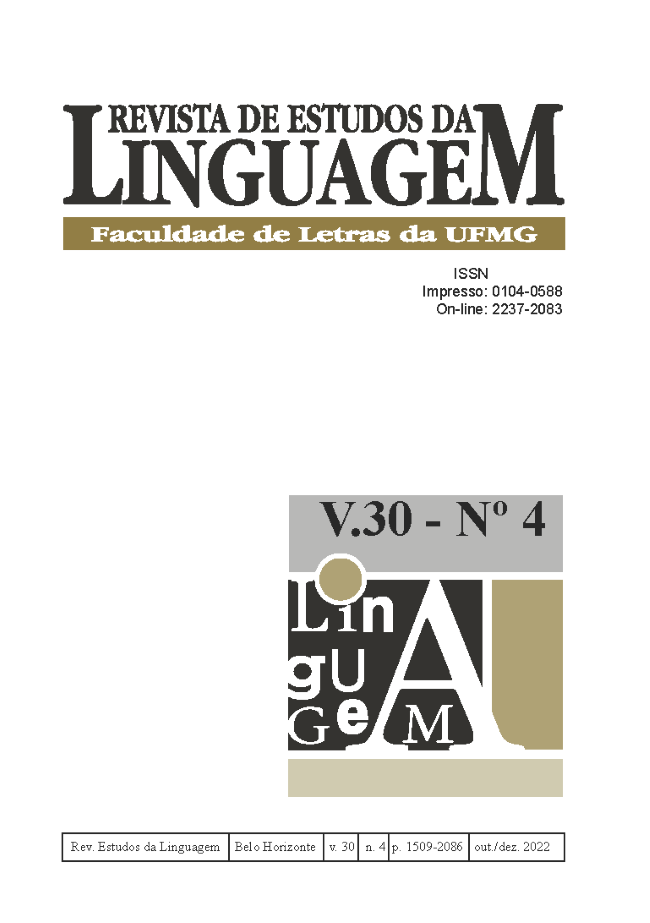Degree constructions in Brazilian Portuguese and the translinguistic variation in the expression of comparative constructions
DOI:
https://doi.org/10.17851/2237-2083.30.4.2015-2042Keywords:
Semantics, Semantic Universals, Degree Modifiers, Comparative ClausesAbstract
The paper discusses the hypothesis of parameters for the expression of comparison and degree constructions discussing data from Brazilian Portuguese (BP). Beck et alii (2009) and Beck, Oda and Sugisaki (2004) propose three parameters: i) the language has degree predicates (DSP – Degree Structure Parameter); ii) the language has or does not have binding of degree variables in the syntax (DAP -Degree Abstraction Parameter); and iii) the language has a syntactic degree argument filled (DegPP – Degree Phrase Parameter). Languages with negative setting in the DSP do not show any degree construction at all, especially comparative constructions with an expression like “more”. The DAP explains structures with binding of degree variables in the syntax, like comparative clauses with scope ambiguities. At last, there is the impossibility of filling the syntactic degree argument of gradable adjectives with measure phrases (cf. *2 metros alto/2 meters tall). This fact is explained by a negative setting in the DegPP. It is shown that BP receives positive setting in the first ones but negative setting in the last. It is also discussed degree interrogatives and measure phrases like 2 metros de altura “2 meters of height”. The paper concludes that these structures should be better discussed to understand their place in the degree parameter hypothesis.




 Esta obra está licenciada com uma Licença
Esta obra está licenciada com uma Licença 